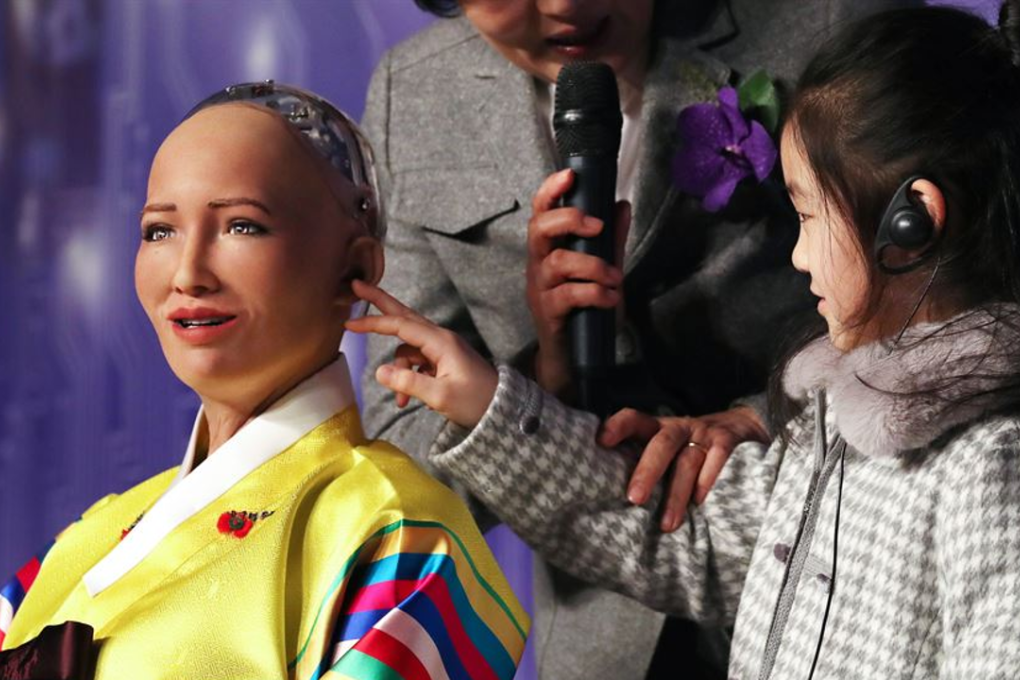Advertisement
In the AI revolution, creative children – not wannabe bots – are the future
Koichi Hamada says Japan is investing in preschool education as the country recognises the need to foster creativity, critical thinking and communication skills in preparation for a machine-dominated future, one that the current rote-learning-based system will not serve
Reading Time:4 minutes
Why you can trust SCMP

The fourth industrial revolution stands out from its predecessors in a critical way: rather than making it easier for humans to use their surroundings more effectively for their own benefit, technology is displacing humans in the workplace. The question is who will benefit now.
Advertisement
Automated or otherwise technology-enabled services can increase profit margins for companies, while representing for users cheaper, more convenient or more reliable options than those produced exclusively by humans. But, of course, this comes at a high cost for the humans who previously filled those roles.
Worried AI will replace your job? Here’s an explainer to prepare for that day
People all over the world have embraced ride-sharing and transport services such as Uber, to the detriment of traditional taxi drivers. When artificial-intelligence-enabled driverless cars become cost-effective and reliable, Uber and taxi drivers alike will become obsolete.
In stock trading, 79 per cent of market transactions are now performed by software, according to Frank Zhang of the Yale School of Management, reflecting the hope that machines will be able to identify patterns more effectively than a human could – a hope that may have contributed to the recent stock market correction. In any case, this doesn’t bode well for human traders.
Artificial intelligence bot beats humans at reading in a first for machines
I myself have saved on translation costs since realising that, with some edits by me, Google Translate can work just fine, though this means lost income for the graduate students I used to hire for the task. While simultaneous interpreters – who occupy a highly paid profession – may scoff at the notion that machines will threaten their positions any time soon, the success of machine learning in highly complex strategic games like Go suggests that machines’ ability to learn should not be underestimated.
In short, the AI-driven revolution will have its winners and losers. To win, it is vital not just to avoid being displaced by new technologies, but also to capitalise on the new opportunities they present. This might mean investing in cutting-edge businesses such as Uber, as the Japanese-Korean industrialist Masayoshi Son has done. Or it might mean acquiring the knowledge and skills needed to secure a job that takes advantage of this new economy.
Such responses are good not just for individuals, but also for economies as a whole. In Japan, for example, human-capital development is crucial to support growth as the population ages and shrinks. And that process begins early: as the Nobel laureate economist James Heckman has shown, education of young children has a significant impact on productivity. That is why Prime Minister Shinzo Abe has announced that half of the extra revenue raised from the consumption tax hike that will go into effect in 2019 will be invested in preschool education.
Education in Japan today – and perhaps also in South Korea – is something like the game Jeopardy: the one who knows the most facts is the winner
To give young people the tools they will need to thrive in the changing digital economy, such investment must focus on improving the quality of education. That may mean transforming curriculums to focus less on rote learning or straightforward calculation and more on skills like critical thinking, communication and leadership.

Advertisement